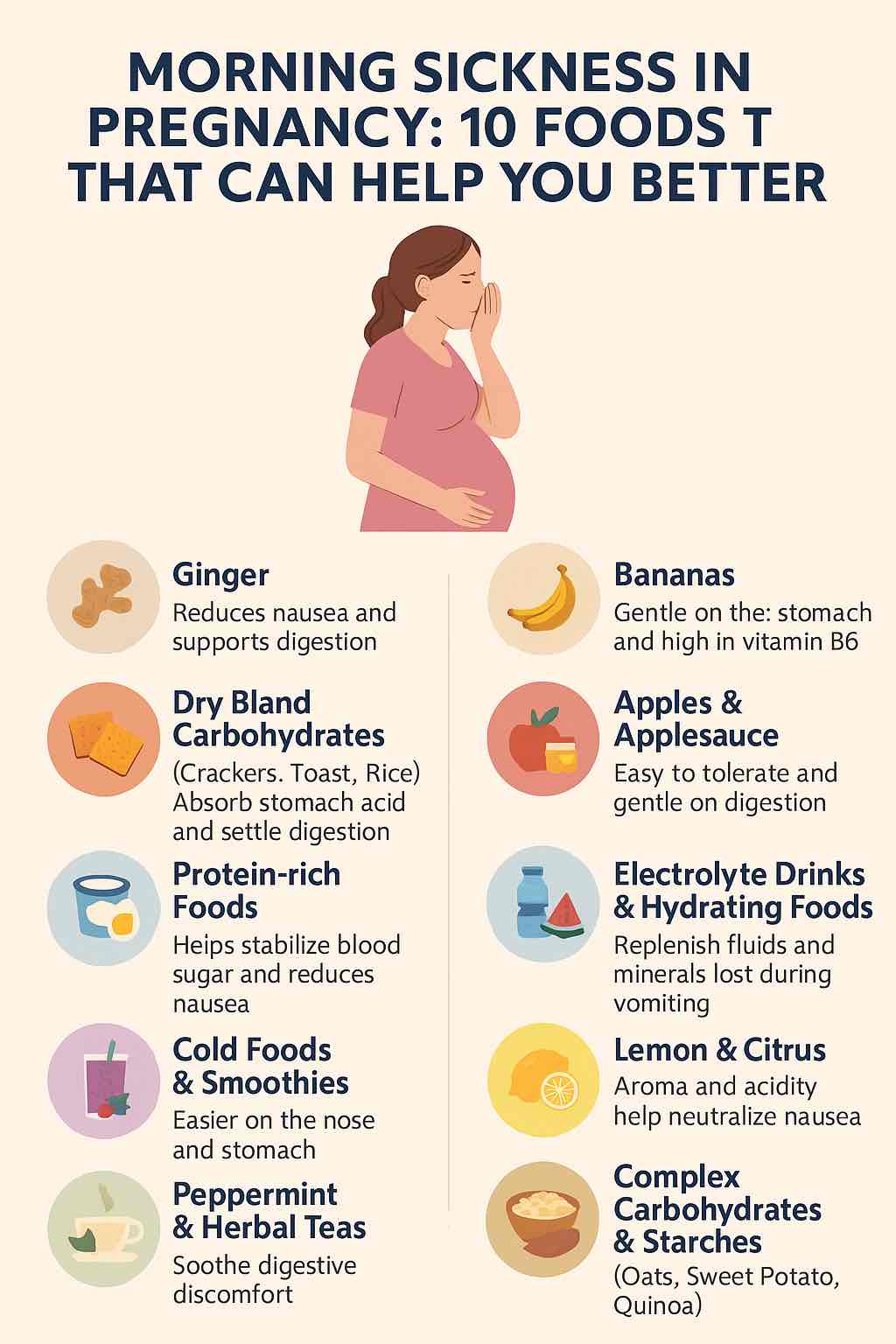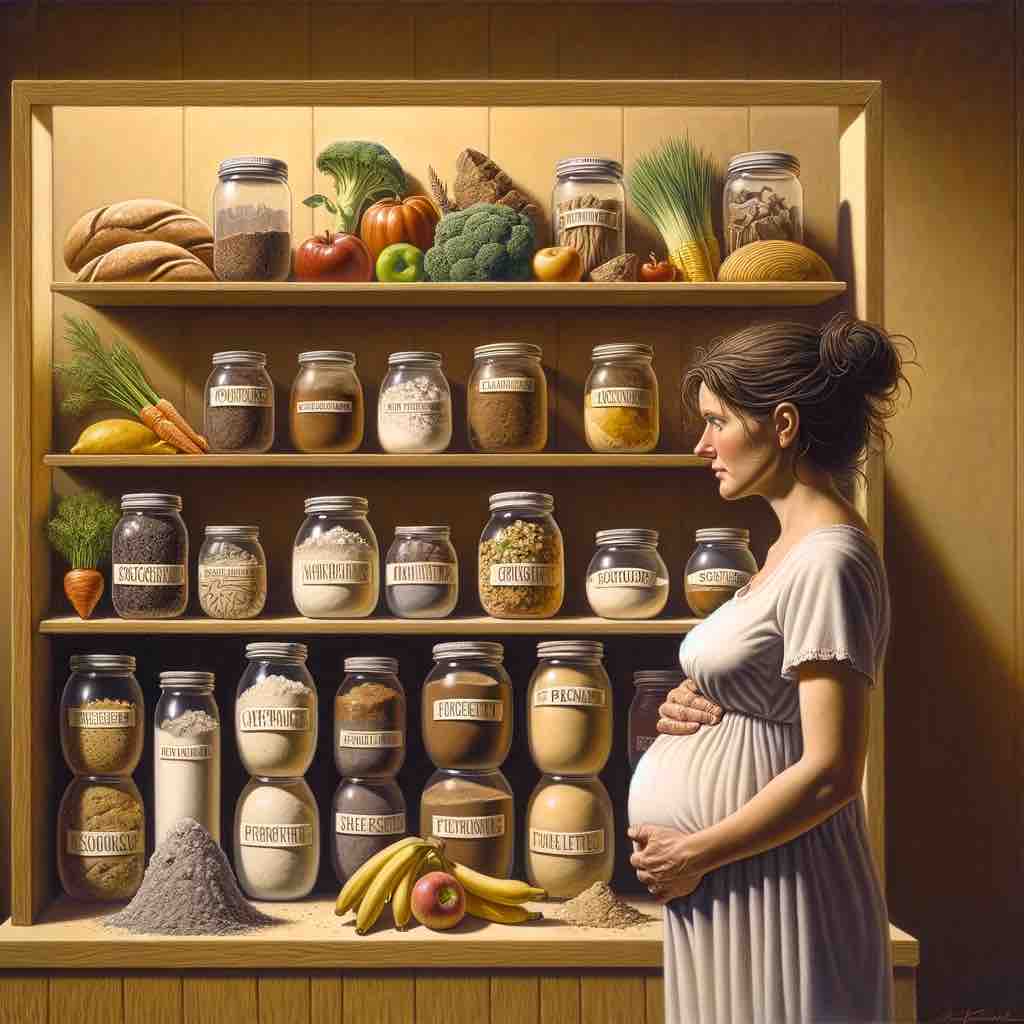
Introduction:
Imagine standing in front of your refrigerator, the clock striking midnight, as you reach out for that crunchy, tangy pickle. Sounds familiar? This is a scene many expecting mothers can relate to. But ever wondered what makes pickles, in their numerous avatars – from the fiery achaars of India to the dainty cornichons of France – such a staple in the pregnancy cravings list?
Let’s take a moment to appreciate the diversity and richness of pickles across the globe. Picture the sharp, garlic-infused flavors of a Kosher dill from New York delis, the complex spiciness of Korean kimchi, or the sweet-and-sour fusion in a jar of bread and butter pickles. Each variety tells a story, a culinary tradition that has seasoned our palates for centuries. And during pregnancy, these flavors seem to take on a new significance.
In this post, we’re not just exploring the ‘why’ behind these cravings; we’re celebrating the cultural tapestry that makes pickles a universal phenomenon. Why do these fermented delights become a go-to snack for so many moms-to-be across different cultures? Is there a hidden nutritional script that our bodies are trying to follow? How do different societies incorporate these tangy treats into their daily diet, and what can we learn from them?
Join us as we embark on this savory exploration. We’ll delve into the science behind pregnancy cravings, traverse the globe to understand various pickle traditions, and uncover the balance between indulgence and nutrition. This isn’t just a food story; it’s a journey of taste, tradition, and the unique experiences of pregnancy.
Section 1: The Science Behind the Cravings
When it comes to understanding the intense pickle cravings during pregnancy, science points us to a blend of hormonal and physiological changes that transform the pregnant body into a unique sensory and nutritional landscape. But it’s not just about the body’s needs; it’s a fascinating interplay of biology, psychology, and perhaps, a touch of mystery.
Hormonal Symphony
During pregnancy, the body undergoes a hormonal overhaul. Hormones like estrogen and progesterone surge, altering everything from your sense of smell to your taste buds. These changes can intensify flavors, making the sharp tanginess of a pickle more appealing than ever. It’s as if your body is fine-tuning its senses, and pickles hit all the right notes.
Nutritional Undercurrents
Then there’s the nutritional aspect. Pickles are high in sodium, a mineral that your body needs more of during pregnancy due to increased blood volume. This need for sodium might partially explain the cravings. But pickles aren’t just about salt; they can also be a good source of potassium, vitamin K, and other micronutrients, depending on the type and preparation method.
Craving for Comfort
Beyond the physical, there’s also a psychological angle. Pregnancy can be a rollercoaster of emotions and stress. Comfort foods, which often include tangy and salty items like pickles, can be a subconscious attempt to find solace, familiarity, and a dash of joy in the midst of this life-changing journey.
A Sensory Affair
Let’s not overlook the sensory experience. The crunch of a pickle, its refreshing juiciness, the burst of flavor – it’s a multi-sensory experience that can be incredibly satisfying, especially when your body is going through so many changes.
In this section, we’ve only begun to peel back the layers of the pickle craving mystery. As we move forward, we’ll explore how different cultures have embraced and interpreted this craving in their own unique ways.
Section 2: The Cultural Tapestry of Pickles in Pregnancy
As we delve deeper into the world of pickles during pregnancy, it becomes clear that this craving is not just a biological response but a cultural phenomenon. Each culture brings its unique pickle varieties to the table, enriching the pregnancy experience with a diverse range of flavors and traditions.
A Global Pickle Panorama
- Indian Achaar: In India, pickles, known as achaar, are a symphony of spices and flavors. Made with ingredients like mangoes, lemons, and a variety of vegetables, these pickles are often mixed with potent spices like fenugreek, mustard, and asafoetida. For pregnant women in India, achaar is not just a treat but a celebration of taste, often believed to balance the body’s changing needs during pregnancy.
- Korean Kimchi: Moving to Korea, kimchi, a staple in Korean cuisine, offers a completely different flavor profile. This fermented pickle, usually made from cabbage and radishes, is seasoned with chili, garlic, and ginger. It’s not only flavorful but also rich in probiotics, which can be beneficial during pregnancy.
- Eastern European Varieties: In Eastern Europe, pickles are often synonymous with fermented cucumbers, known for their sour taste and probiotic qualities. These pickles, sometimes served with a dash of sour cream, have been a traditional remedy for pregnancy cravings and morning sickness.
- Japanese Tsukemono: Japanese pickles, or Tsukemono, made with vegetables like radishes and cucumbers, offer a more subtle flavor. They are often pickled using methods involving salt, rice bran, or vinegar, providing a gentle, palate-cleansing experience.
Cultural Significance and Beliefs
- Pregnancy Rituals: In many cultures, pickles are more than just a food item; they are part of pregnancy rituals and traditions. For instance, some cultures believe that consuming certain types of pickles can influence the baby’s taste preferences or even predict the baby’s gender.
- Comfort and Community: Sharing pickle recipes and indulging in pickle tasting can be a way for communities to come together, offering support and comfort to expectant mothers. This communal aspect highlights the role of pickles in fostering connections and shared experiences during pregnancy.
Varied Health Perspectives
- Nutritional Balancing Act: While pickles offer a range of flavors and experiences, each culture also has its unique perspective on the health aspects of consuming pickles during pregnancy. For example, while some emphasize the probiotic benefits, others may caution against the high sodium content, especially in commercially produced pickles.
In this section, we’ve traveled across the globe, exploring how different cultures embrace and interpret pickle cravings during pregnancy. As we move on, we’ll dive into the practical aspects of including pickles in a pregnancy diet, striking a balance between indulgence and health.
Section 3: Balancing Cravings with Nutritional Wisdom
In the fascinating journey of pregnancy, indulging in pickle cravings is more than a mere taste preference; it’s about balancing these cravings with nutritional wisdom. As we unpack the relationship between pickles and pregnancy, it’s crucial to navigate the line between satisfying cravings and maintaining a healthy diet.
Understanding Nutritional Content
- Electrolytes and Hydration: Pickles are a rich source of electrolytes like sodium, which is essential for maintaining fluid balance in the body. During pregnancy, the need for sodium and hydration increases, making pickles a tempting choice. However, moderation is key, as excessive sodium intake can lead to health issues such as water retention and high blood pressure.
- Vitamins and Antioxidants: Depending on the type, pickles can also be a good source of vitamins like vitamin K and vitamin A, and antioxidants. These nutrients play a vital role in supporting both maternal health and fetal development.
- Digestive Benefits and Probiotics: Fermented pickles, like kimchi and certain traditional European cucumber pickles, contain probiotics that can aid in digestion and improve gut health, which is particularly beneficial during pregnancy.
Moderation and Variety
- The Salt Factor: While pickles do satisfy the craving for something salty and tangy, it’s important to be mindful of the overall salt intake. Opt for lower-sodium variants or balance your pickle consumption with other low-sodium foods.
- Diversifying Your Diet: Ensuring a varied diet during pregnancy is vital. Alongside pickles, incorporate a range of fruits, vegetables, whole grains, lean proteins, and dairy products to meet your and your baby’s nutritional needs.
Homemade and Healthier Alternatives
- Making Your Own Pickles: One way to enjoy pickles healthily is to make them at home. This allows control over the ingredients, especially the amount of salt and sugar. Homemade pickles can be made with vinegar, salt, water, and your choice of spices and herbs, providing a healthier alternative to store-bought ones.
- Exploring Different Types: Experiment with different types of pickles from various cultures. For instance, Japanese Tsukemono or Indian Achaar can offer new flavors and nutritional profiles, expanding your culinary horizons during pregnancy.
Listening to Your Body and Consulting Professionals
- Understanding Your Cravings: While cravings are a normal part of pregnancy, they can sometimes indicate nutritional deficiencies. If you find yourself excessively craving pickles or very salty foods, it might be worth discussing this with your healthcare provider.
- Professional Guidance: Always consult with your doctor or a registered dietitian before making significant changes to your diet, especially if you have dietary restrictions or health conditions like hypertension or gestational diabetes.
In this section, we have delved into the importance of balancing pickle cravings with nutritional health during pregnancy. As we move forward, we’ll explore more practical tips and interesting ways to include pickles in your pregnancy diet, ensuring both taste and health go hand in hand.
This section aims to provide practical advice on how to enjoy pickles during pregnancy in a healthy and balanced way. It combines nutritional information with tips on moderation and variety, emphasizing the importance
of the importance of understanding your body’s signals and the need for professional guidance in your diet during pregnancy. The focus is on a holistic approach to enjoying pickles, ensuring that they add flavor and joy to your pregnancy journey without compromising nutritional health.
In the next section, we will explore creative and healthy ways to incorporate pickles into your pregnancy diet, offering recipes and ideas that balance taste with health benefits. We’ll look at how to make the most of your pickle cravings while ensuring you and your baby get all the essential nutrients needed for a healthy pregnancy.
Stay tuned as we continue to celebrate the delightful world of pickles in pregnancy, blending tradition, taste, and health in every crunchy bite!
Section 4: Creative Ways to Enjoy Pickles During Pregnancy
Embracing pickle cravings during pregnancy doesn’t mean you have to limit yourself to straight-out-of-the-jar snacking. There are numerous creative and healthy ways to include pickles in your diet, ensuring you enjoy their unique flavors while gaining nutritional benefits.
Integrating Pickles into Meals
- Salads and Appetizers: Add chopped pickles to your salads for a tangy twist. They pair well with leafy greens, fresh vegetables, and even fruits like apples. Pickles can also be a zesty addition to appetizers like hummus or Greek yogurt dips, offering a burst of flavor and texture.
- Main Courses: Enhance your main dishes with pickles. Try incorporating diced pickles into grain bowls, rice dishes, or even as a relish for grilled meats or fish. They can add depth and brightness to your meals, complementing other flavors.
Homemade Pickle Recipes
- Making Lighter Versions: Experiment with making your own pickles using a variety of vegetables like carrots, beets, or cauliflower. Use less salt and add herbs like dill, garlic, or mustard seeds for flavor. Vinegar-based pickling can be a healthier alternative, as it doesn’t require the heavy use of oil or sugar.
- Quick Pickling at Home: Quick pickling is an easy method to enjoy the freshness of pickles without the long fermentation process. Combine vinegar, water, a bit of sugar, and spices, bring to a boil, and pour over your choice of sliced vegetables. Let it cool, and your pickles are ready to eat in just a few hours!
Balancing Flavors and Nutrition
- Mixing Sweet and Sour: If you’re craving something less tangy, try sweet pickles or bread-and-butter pickles, which offer a sweeter flavor profile. They can be a delightful addition to sandwiches or burgers.
- Spicy Variants: For those who enjoy a bit of heat, opt for pickles with spicy elements like jalapeños or chili flakes. These can be great in small quantities but remember to balance the heat with cooling elements in your meal.
Snacking Smart
- Pickle-Based Snacks: Create healthy snacks using pickles, like pickle wraps with turkey or ham and cheese. You can also enjoy pickles as a side with crackers and cheese for a satisfying snack.
- Hydration Check: Remember to drink plenty of water when indulging in pickles, as their high sodium content can contribute to dehydration.
Listening to Your Body
- Moderation is Key: While it’s okay to give in to your cravings, remember that moderation is important. Enjoy pickles as part of a balanced diet, ensuring you get a wide range of nutrients from other food sources.
- Allergy and Sensitivity Considerations: Be mindful of any food allergies or sensitivities. If you’re unsure about how a certain type of pickle might affect you or your baby, consult your healthcare provider.
In this section, we’ve explored various ways to enjoy pickles during pregnancy that are both delightful and nutritious. Whether it’s a fresh take on salads, a spicy kick to your main dishes, or a quick homemade pickle snack, there are endless possibilities to enjoy pickles in a way that satisfies your cravings and supports your pregnancy nutrition.
Remember, the key to enjoying pickles during pregnancy lies in balancing your cravings with health-conscious choices. By incorporating pickles into your diet in creative, flavorful, and nutritious ways, you can savor the unique tastes they offer while ensuring a healthy and enjoyable pregnancy journey.
Stay tuned for our next section, where we will delve into the world of pickle-based desserts – yes, you read that right! We’re going to explore some unexpectedly delicious ways to satisfy your sweet tooth with a pickle twist!
Section 5: Pickle-Infused Desserts and Sweet Delights
In the wonderful world of pregnancy cravings, the idea of pickle-infused desserts might not be as far-fetched as it sounds. While pickles are traditionally associated with savory dishes, their unique tang can be surprisingly delightful in sweet concoctions. This section explores how the briny bite of pickles can be transformed into desserts that cater to those unconventional pregnancy cravings.
The Art of Sweet Pickle Desserts
- Pickle Ice Cream: A bold combination that has gained popularity, pickle ice cream can be a refreshing treat. The key is to balance the tartness of pickles with creamy, sweet ice cream base, perhaps with hints of vanilla or honey.
- Pickle and Chocolate Pairings: Chocolate and pickles? Absolutely! The bitterness of dark chocolate can complement the sharpness of pickles. Think chocolate-dipped pickle slices or pickle bits sprinkled over a chocolate tart.
Exploring Fruit Pickles in Sweets
- Sweet Pickled Fruits: Not all pickles have to be cucumber-based. Sweet pickled fruits like cherries or peaches can be a fantastic addition to desserts. They can be incorporated into pies, tarts, or served with creamy cheeses on a dessert platter.
- Candied Pickles: Transforming pickles into candied versions by simmering them in a sweet syrup can yield a unique ingredient for various desserts, from cakes to parfaits.
Baking with Pickles
- Pickle Bread and Muffins: Adding finely chopped pickles or pickle juice to bread or muffin recipes can create surprisingly moist and flavorful baked goods. The pickles add a subtle tang, enhancing the overall flavor profile.
- Pickle-Flavored Frostings: For an adventurous twist, pickle juice can be incorporated into frostings for cakes or cupcakes. The trick is to use it sparingly and balance it with sweeter ingredients like powdered sugar or cream cheese.
Creative Confectioneries
- Pickle-Flavored Sweets: The confectionery world has seen a rise in pickle-flavored candies, from gummies to lollipops. These can be fun treats for those who can’t get enough of pickle flavors.
- Pickle and Cheese Desserts: For a more sophisticated dessert, combine pickles with cheeses like brie or mascarpone on a dessert charcuterie board, adding nuts and honey for a blend of textures and flavors.
Safety and Moderation
While experimenting with pickle-infused desserts, it’s essential to consider safety and moderation. Ensure that the pickles and any other ingredients used are pregnancy-safe and consumed in reasonable quantities. It’s always a good idea to consult with your healthcare provider if you’re unsure about any food items during pregnancy.
Pickle-based desserts might seem unconventional, but they can be delightful ways to satisfy those unique pregnancy cravings. Whether it’s a scoop of pickle ice cream or a slice of sweet pickle pie, these unusual dessert ideas can add an exciting twist to your pregnancy diet.
Section 6: Navigating Health Considerations and Pickles During Pregnancy
While embracing the diverse world of pickles and their incorporation into your pregnancy diet, it’s essential to navigate the health considerations associated with them. This section addresses key health aspects and offers guidance on how to enjoy pickles safely during pregnancy.
Understanding the Health Implications
- Sodium Intake and Blood Pressure: Pickles, especially those that are commercially prepared, can be high in sodium. Excessive sodium intake during pregnancy can lead to increased blood pressure and the risk of conditions like preeclampsia. It’s crucial to monitor your sodium intake and opt for low-sodium pickle options where available.
- Acidity and Digestive Health: The acidity in pickles can sometimes exacerbate heartburn or acid reflux, common issues during pregnancy. If you’re prone to these conditions, consider limiting your intake of very acidic pickles and monitor how different types of pickles affect you.
Safe Consumption Practices
- Homemade vs. Store-bought: When possible, opt for homemade pickles or those from trusted artisanal sources. Homemade pickles allow you to control the ingredients, especially the amount of salt and sugar. If buying store-bought, read labels carefully for sodium content, preservatives, and other additives.
- Avoiding Unpasteurized Pickles: Unpasteurized pickles may contain harmful bacteria that can be risky during pregnancy. Stick to pasteurized versions to reduce the risk of foodborne illnesses.
Nutritional Balance and Diet Diversity
- Balanced Diet: While pickles can be a healthy part of your diet, they shouldn’t be the main focus. Ensure a balanced diet that includes a variety of fruits, vegetables, whole grains, lean proteins, and dairy products to provide essential nutrients for you and your baby.
- Hydration is Key: Due to the high sodium content in pickles, staying hydrated is crucial. Drinking plenty of water will help balance the sodium levels in your body and support overall hydration.
Consulting Healthcare Professionals
- Personalized Dietary Advice: Every pregnancy is unique, and what works for one person may not work for another. Consult with your healthcare provider or a registered dietitian for personalized dietary advice, particularly if you have specific health conditions or dietary restrictions.
- Monitoring Your Body’s Responses: Pay attention to how your body responds to different types of pickles. If you notice any adverse reactions or discomfort, it’s important to adjust your diet accordingly and seek professional advice if needed.
Navigating the health considerations of consuming pickles during pregnancy is about finding a balance. By being informed, cautious, and mindful of your body’s needs and reactions, you can safely enjoy the tangy delight of pickles while ensuring the well-being of both you and your baby.
Section 7: Frequently Asked Questions About Pickles During Pregnancy
In this section, we address some common questions and concerns about consuming pickles during pregnancy. This is a compilation of inquiries from expectant mothers, providing clarity and guidance based on health and nutritional perspectives.
Q1: Can Eating Too Many Pickles Harm My Pregnancy?
- Answer: Moderation is key. While pickles are generally safe, excessive consumption, mainly due to their high sodium content, can lead to complications like increased blood pressure. It’s best to enjoy pickles as part of a balanced diet.
Q2: Are There Any Pickles I Should Avoid During Pregnancy?
- Answer: It’s advisable to avoid unpasteurized pickles due to the risk of bacterial contamination. Also, be cautious with pickles that are high in sodium or contain lots of preservatives and artificial flavors.
Q3: Can Pickles Help With Morning Sickness?
- Answer: Many women find that the tangy taste of pickles can help alleviate symptoms of morning sickness. However, this can vary from person to person. If pickles help you feel better, they can be a good choice, but listen to your body’s responses.
Q4: How Can I Include Pickles in My Diet Without Exceeding Sodium Limits?
- Answer: Opt for lower-sodium versions of pickles or make your own at home where you can control the amount of salt used. Balance your pickle consumption with other low-sodium foods throughout the day.
Q5: Are Sweet Pickles a Healthier Option During Pregnancy?
- Answer: Sweet pickles may have less sodium but can be high in sugars. It’s important to check the nutritional content and consume them in moderation as part of a varied diet.
Q6: Can I Eat Pickles if I Have Gestational Diabetes?
- Answer: While pickles are low in carbohydrates, some sweetened varieties might affect blood sugar levels. If you have gestational diabetes, consult your healthcare provider for personalized advice.
Q7: What Are Some Healthy Alternatives to Traditional Pickles?
- Answer: Consider trying naturally fermented pickles like sauerkraut or kimchi, which are lower in sodium and have probiotic benefits. You can also explore pickling a variety of vegetables at home using vinegar, water, and a minimal amount of salt.
This FAQ section aims to provide clear and concise answers to common concerns about pickles during pregnancy, helping expectant mothers make informed choices. For more specific or personal queries, it’s always recommended to consult a healthcare professional.
In our concluding section, we will wrap up our comprehensive exploration of pickles during pregnancy, summarizing key takeaways and offering final thoughts on how to enjoy this unique craving responsibly and healthily.
Section 8: Concluding Thoughts on Pickles and Pregnancy
As we conclude our exploration into the world of pickles during pregnancy, it’s important to summarize the key insights and offer final thoughts on this savory subject. This section aims to encapsulate the essence of what we’ve discussed, providing a comprehensive wrap-up for expectant mothers.
Embracing Cultural Diversity in Pickles
- We’ve seen how pickles are not just a food item but a cultural staple in many parts of the world. From the spicy achaars of India to the tangy kimchi of Korea, pickles embody a rich cultural heritage. Embracing these diverse pickle traditions can be a delightful way to explore global cuisines during pregnancy.
Health and Nutrition: A Delicate Balance
- The nutritional aspects of pickles, especially their sodium and electrolyte content, are crucial for pregnant women to consider. Balancing pickle cravings with overall dietary health is key. Remember to watch for high sodium levels and opt for pickles that are lower in salt and free from harmful preservatives.
Creative Culinary Adventures
- We’ve explored various ways to incorporate pickles into your diet, from salads and main dishes to innovative desserts. These culinary adventures can make your pregnancy diet more enjoyable while ensuring you’re getting a mix of nutrients.
Listening to Your Body
- Every pregnancy is unique, and so are the cravings and reactions to different foods. It’s important to listen to your body and observe how it responds to pickles. If you have any concerns, especially if you have specific health conditions like hypertension or gestational diabetes, consulting with a healthcare provider is advisable.
The Joy of Pickles in Moderation
- Ultimately, enjoying pickles during pregnancy is about finding joy in the little things. Whether it’s the crunch of a dill pickle or the zing of a pickled ginger, these flavors can add excitement to your pregnancy journey. However, always remember the golden rule of moderation to ensure that your and your baby’s nutritional needs are met.
As you navigate your pregnancy journey, remember that food is not just about sustenance but also about pleasure and cultural exploration. Pickles, in all their variety, offer a world of flavors to discover. Enjoy them responsibly, and let them be a part of your memorable pregnancy experience.
Thank you for joining us on this tangy tour of pickles during pregnancy. We hope this guide has been informative, enjoyable, and helpful in satisfying your pickle cravings in a healthy and delightful way.















